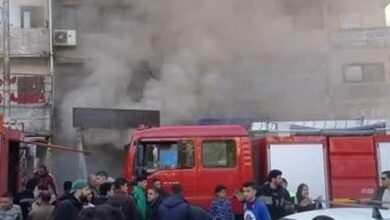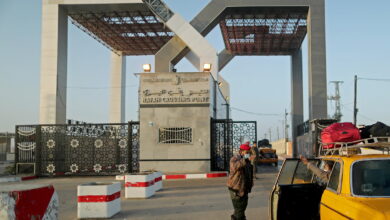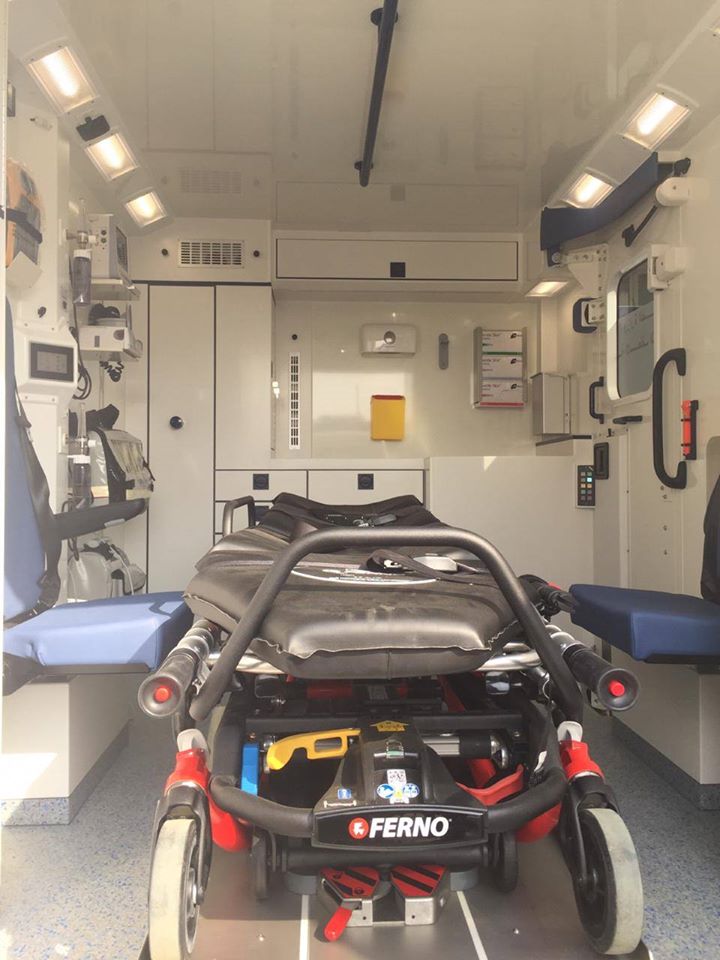Volunteers gather inside ambulances outside the Helwan metro stop, surrounded by crowds of people and vendors, ready to donate toward a noble cause: saving a life. However, with the rise in political instability and the urgent need for blood donations, Egyptians are becoming less willing to donate blood, afraid it could benefit those across the political spectrum.
In the political turmoil following the dispersal of pro-Morsy sit-ins in Rabaa al-Adaweya and al-Nahda squares in Cairo, injuries and bloodshed have become recurrent more than ever in Egypt. Medical sources have estimated the official number patients admitted to hospitals at more than 8,000 in less than two months, mostly with injuries requiring blood transfusions.
“Donate blood!” shouts paramedic Ahmed Ibrahim to passersby. “There are thousands of patients in need of blood transfusions!”
To many, Ibrahim’s pleas fall on deaf ears. Some Egyptians, like Ahmed Abu Laban, 32, have stopped donating blood recently as they have begun to believe that they are “more deserving” of their own blood. “We only donate to family members or people we know personally,” he said.
Abu Laban from Sharqeya governorate used to be a regular blood donor. “I would donate almost every month and had my family donate as well,” he told Egypt Independent. “I adopted this habit after the outbreak of the 25 January revolution.”
Following the events of 30 June, however, he decided to stop donating blood at outpatient clinics or ambulance cars. “The recent political turmoil going on in Egypt made me, as well as others in my family, unaware of who is right and who is wrong. We do not want to donate our blood to have it sold at private hospitals or have it help an undeserving person,” he explained. “My blood could be going to someone who is contributing to deepening the crisis in Egypt or spreading terrorism. I do not want that.”
“We have seen hundreds of patients die in the reception of our hospital due to lack of blood,” Dr. Mohamed Ahmed, neurosurgeon at Ain Shams University Hosptial, told Egypt Independent. “There was absolutely no blood in any blood bank or hospital in Egypt. It was a crisis. However, what deepened the crisis was the unusual influx of injured patients all in need of blood transfusion. We have not seen numbers like this before.”
Regardless of need, it seems as if there is not enough blood in Egypt to go around. “We collect quite a bit of blood but we need more, given the accidents resulting from the political events,” Ibrahim said.
The whole problem is that the supply is less than the demand, says Dr. Afaf Ahmed, director of the National Center for Blood Transfusion that oversees 24 centers nationwide. “Blood donations have decreased after the 30 June revolution due to the state of division between the regime and Brotherhood supporters,” she says
In Egypt, blood shortages are usually made up for through increased blood donation campaigns where ambulance cars spread across Egyptian cities to facilitate blood donations. However, Dr. Afaf Ahmed says, 70 ambulances go out daily to collect blood but return only with 900 liters, no more than 70 percent of what hospitals and patients need. “We collect an annual average of 1.25 million liters through 72 centers in hospitals, universities, police and army installations, and trade unions, but we need 1.5 million liters to cover the [usual] needs of the country,” she explains.
She added that the Health Ministry is launching a national campaign to donate blood in common places of gathering, such as clubs, schools and universities. “We hope to get more once the academic year starts.”
Dr. Dina Ikram, vice president of a blood transfusion center, said that though Egypt’s population exceeds 85 million, the percentage of donors is rather small. She recognized the fact that many Egyptians have become suspicious because of rumors that their blood might be sold to private hospitals at higher prices, rather than helping those really in need.
Ikram noted that some of the collected blood bags are thrown away due to the high prevalence of diseases like hepatitis C. She says the cost of testing a blood bag is LE400 while it is sold for LE90 only. “Type (B) blood is the most infected with the hepatitis C,” she said. “Seldom do we find samples infected with HIV.”




